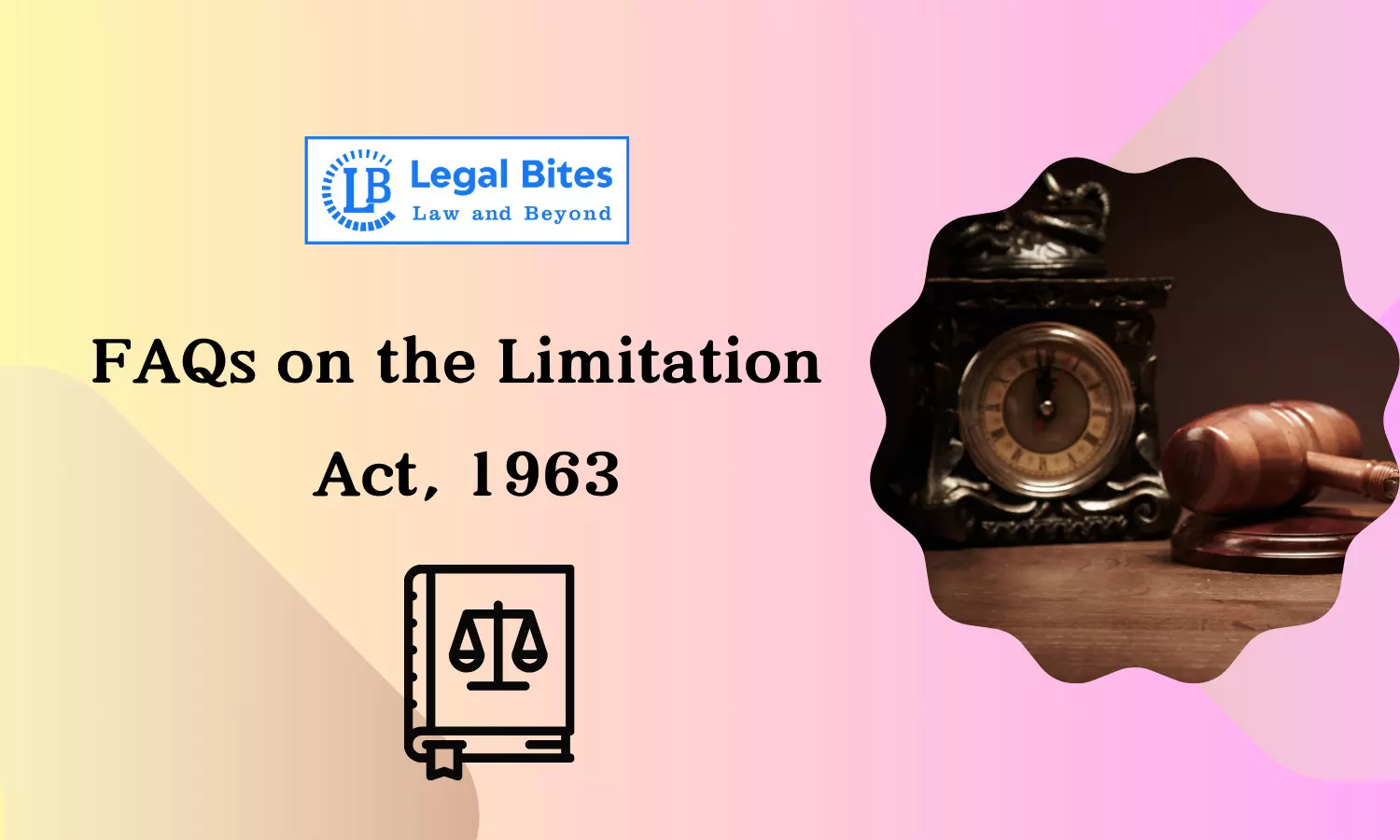FAQs on the Limitation Act, 1963
Get clarity on the Limitation Act, 1963 through these frequently asked questions and answers.

Get quick answers! FAQs on the Limitation Act, 1963. Clear your doubts, master the time constraints in legal proceedings
FAQs on the Limitation Act, 1963
1) What is the Indian Limitation Act 1963?
Answer: The Indian Limitation Act, 1963, sets out the maximum time within which legal proceedings must be initiated.
2) What is the objective of the Indian Limitation Act?
Answer: It aims to prescribe the time limits for different types of legal actions to ensure timely justice.
3) What are the types of actions covered under the Act?
Answer: It covers civil suits, appeals, and applications.
4) How is the limitation period determined under this Act?
Answer: It's determined based on the nature of the legal action.
5) What is the limitation period for filing a suit for recovery of money?
Answer: The general limitation period for the recovery of money is three years.
6) Does the Act have provisions for extending the limitation period?
Answer: Yes, certain situations allow for extension, like fraud or disability.
7) Is there a limitation period for filing a suit for possession of immovable property?
Answer: Yes, 12 years is the limitation period for suits involving immovable property.
8) What happens if a suit is filed after the limitation period expires?
Answer: The suit becomes time-barred, and the court may dismiss it on this basis.
9) Does the Act apply to criminal cases?
Answer: No, it doesn't apply to criminal cases.
10) Is there a specific limitation period for filing a suit for breach of contract?
Answer: Yes, the limitation period for breach of contract is three years.
11) Are there exceptions to the limitation period for certain cases?
Answer: Yes, specific cases like suits against trustees have different limitation periods.
12) Can the limitation period be extended due to the defendant's absence from India?
Answer: Yes, it can be extended under certain circumstances.
13) Can minors avail of an extended limitation period?
Answer: Yes, minors have an extended limitation period for certain suits until they reach adulthood.
14) Are there different limitation periods for different states in India?
Answer: No, the Act provides uniform limitation periods across India.
15) Can the limitation period be extended due to a mistake of law or fact?
Answer: Yes, in certain cases, if the mistake was reasonable, the limitation period can be extended.
16) Does the Act apply to government bodies?
Answer: Yes, it applies to government bodies but with certain exceptions.
17) Is there a limitation period for filing a suit for recovery of possession of movable property?
Answer: Yes, the limitation period for recovery of movable property is three years.
18) Can the limitation period be extended due to the acknowledgement of the debt?
Answer: Yes, acknowledgement of the debt in writing can extend the limitation period.
19) Can the limitation period be extended due to the payment of interest on a debt?
Answer: No, payment of interest does not extend the limitation period.
20) Is there a limitation period for filing a suit for specific performance of a contract?
Answer: Yes, the limitation period for specific performance of a contract is three years.
21) Can the limitation period be extended due to a continuing breach of contract?
Answer: Yes, in cases of a continuing breach, the limitation period runs from the date of the last breach.
22) Can the limitation period be extended for suits against minors?
Answer: Yes, it can be extended until the minor reaches adulthood.
23) Is there a limitation period for filing a suit for compensation for malicious prosecution?
Answer: Yes, the limitation period for malicious prosecution is one year.
24) How do I calculate the limitation period for my case?
Answer: The limitation period usually begins to run from the date when the cause of action accrues. However, there may be exceptions depending on the specific circumstances of the case.
Important Links

